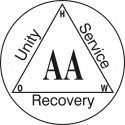Types of California Treatment Centers
The number of drug-induced deaths in California totaled out at 4,178 in 2006, according to a report by the California Drug Control Update. Within the same year, 4,306 people died in car accidents and 3,268 people died from firearm-related incidents. With drug-induced deaths coming in at a close second, this number amounts to 11.4 out of every 100,000 people dying from drug-related causes. Regardless of how severe or moderate a person’s drug habit may be, it can only get worse when left untreated.
Fortunately, anyone seeking treatment for an addiction problem has a wide range of California treatment centers from which to choose. Whether looking for a traditional, holistic or specialty program, a person can find the type of treatment that best meets his or her treatment needs.
Traditional vs. Holistic California Treatment Centers

There are many different types of California treatment centers to choose from.
Ongoing advancements within the addiction treatment field have spawned a varied assortment of California treatment center programs. As traditional treatment programs form the basic framework for most any addiction treatment approach, services offered through these programs provide essential care, guidance and support to people in recovery. Some of the services offered through traditional programs include:
- Individual therapy
- Life skills training
- Group therapy
- Addiction education
- 12-Step programs
While holistic treatment centers hold to a similar treatment approach, service offerings encompass a wide spectrum of treatment methods and techniques, some of which include:
- Meditation
- Yoga
- Energy healing
- Nutrition-based therapies
The wide variety of California treatment center programs are well equipped to address a person’s individual treatment needs as well as his or her personal program preferences.
Specialty Treatment Centers
For those looking for a more specific treatment approach, many California treatment centers specialize in treating particular demographic groups, such as women and teenagers. These programs also use traditional and/or holistic treatment approaches throughout the treatment process.
Specialty programs place an added emphasis on the unique issues and challenges people from specific demographic groups face as individuals in society. For example, a women-centered California treatment center addresses the pressures women face in the home, in the workforce and help them develop stronger self-images within these roles.
For teenager-centered treatment centers, teenagers receive the supports and guidance needed to help them better cope with the demands of home and school. Part of this may entail bringing family members into the therapy process or providing alternative education options to ensure they can keep up with their peers in school.
Residential vs. Outpatient Treatment Centers
As each person enters the recovery process at various stages of addiction, different people often require different levels of treatment when first starting out. People who’ve used alcohol or drugs for years would most likely benefit from a highly structured, intensive treatment environment. Many California treatment centers offer this type of care through inpatient programs. These programs provide a 24-hour a day, seven days a week treatment setting where recovering addicts can focus entirely on getting clean and staying drug-free.
For people at the beginning stages of addiction, many California treatment centers offer outpatient programs where a person can still maintain everyday work and family obligations while receiving needed counseling, medical treatment and group support at a treatment facility. Outpatient programs can also be a next step for people who’ve completed inpatient treatment.
Resources:
California Drug Control Update
http://www.whitehouse.gov/sites/default/files/docs/state_profile_-_california.pdf
